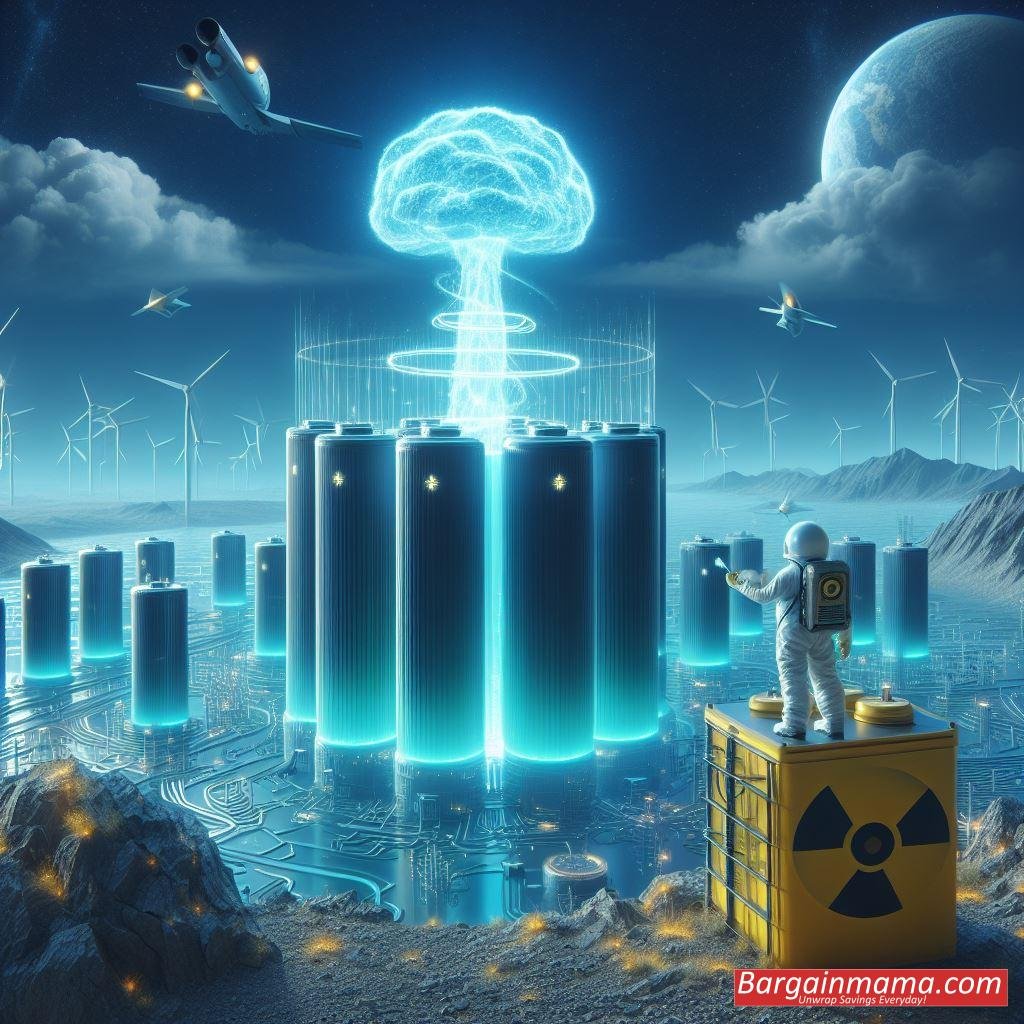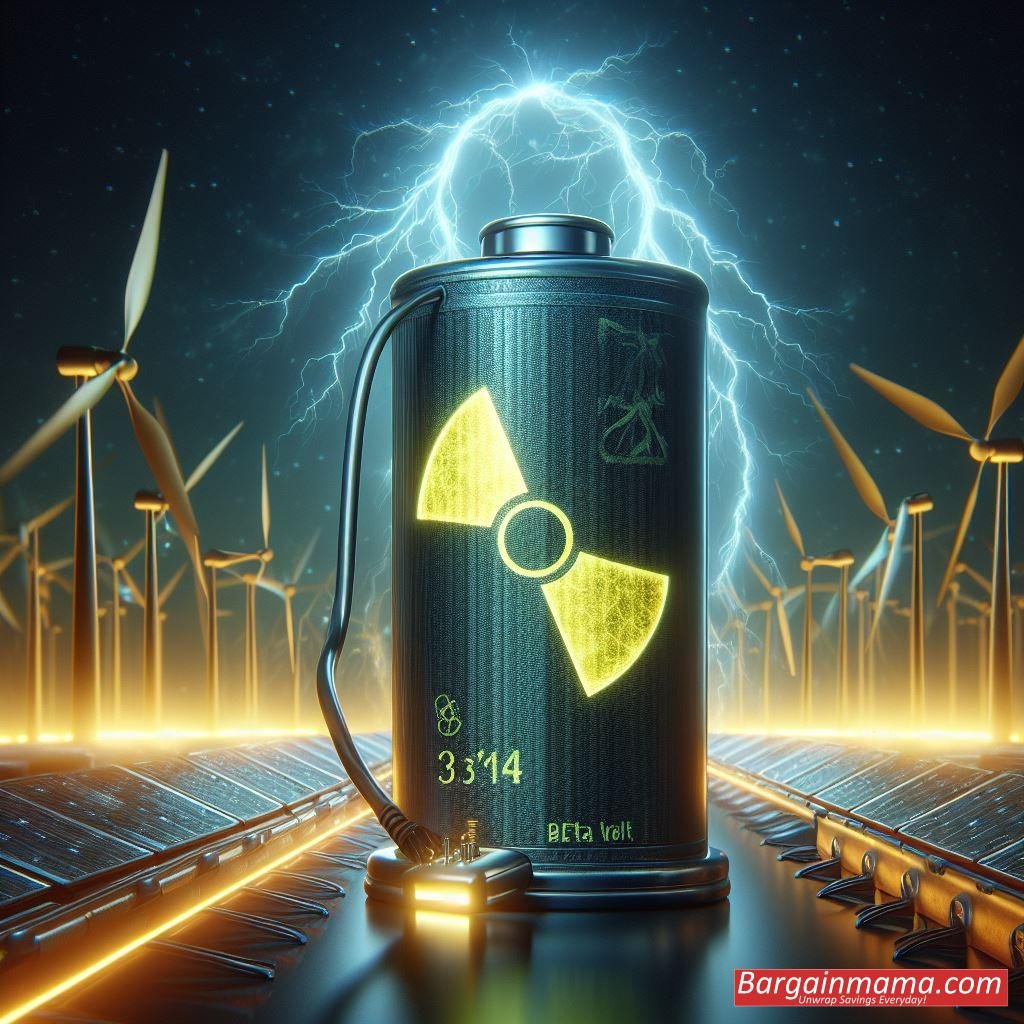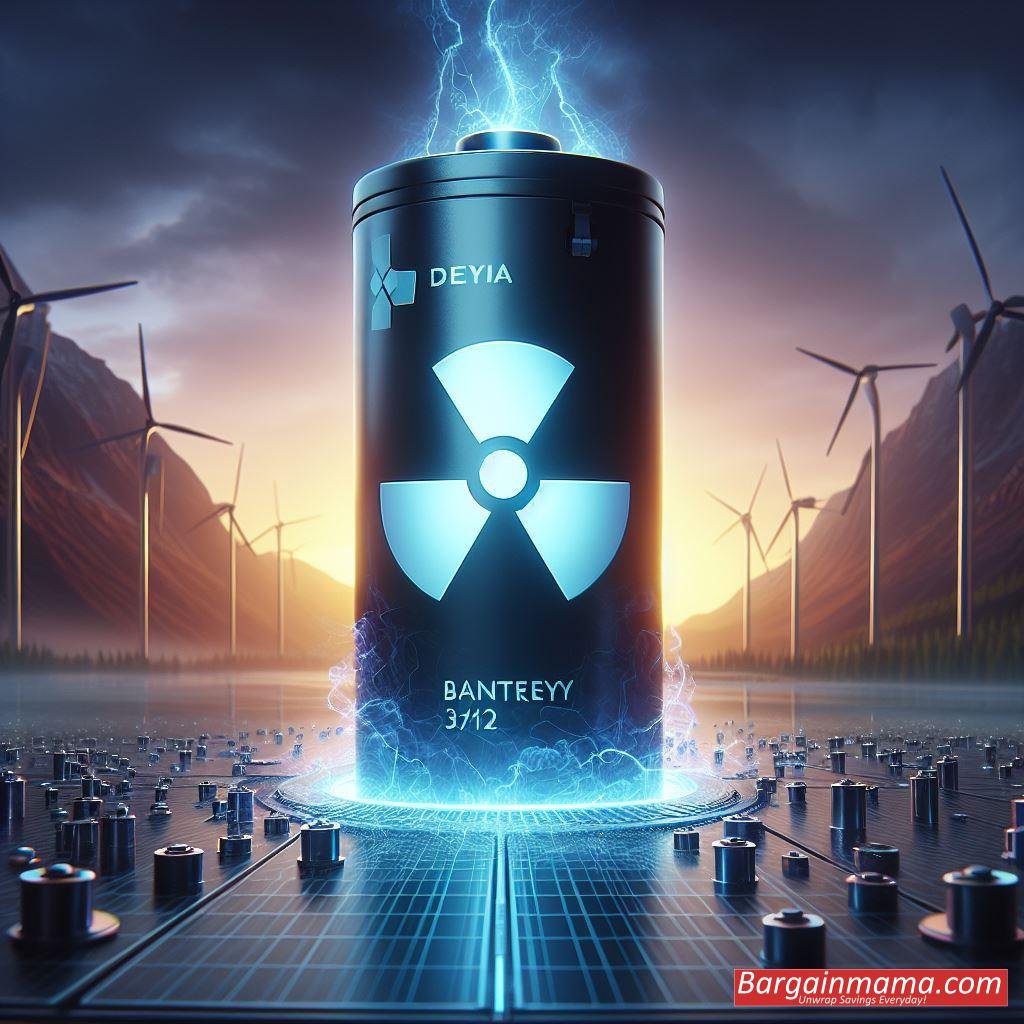A nuclear battery with an astounding 50-year lifespan without a single charge has been developed by Chinese firm Betavolt, in a technical advance that might completely change our understanding of energy storage. This invention has the ability to bring in a new age of environmentally friendly and completely safe power options.

Scientists have been studying nuclear batteries since the 20th century, so the idea is not totally new. Nevertheless, the size and expense of the earlier versions made them unsuitable for mass deployment. The success of Betavolt may be attributed to its ability to optimize and miniaturize the design, resulting in a small and reasonably priced product.
The tiny 15x15x5 cubic millimeter nuclear battery made by Betavolt runs on the energy generated when nickel-63 isotopes decay. This little powerhouse, despite its small size, has the capacity to produce energy continuously for 50 years, providing a dependable and long-lasting power source for a variety of uses.
This rapid advancement in technology has significant ramifications. Envision an age when gadgets such as drones, medical implants, and cellphones may function continuously without the need for charges or outlets. According to Betavolt, their atomic energy solution will power revolutionary technologies including artificial intelligence (AI), breakthroughs in aerospace, and micro-robotics in the future.

The safety profile of Betavolt’s nuclear battery is among its most attractive features. These little wonders are made to endure high temperatures and physical strain without losing their integrity, in contrast to regular batteries, which might explode or catch fire. Additionally, they don’t release any radiation into the environment, which qualifies them for usage in delicate medical equipment like cochlear implants and pacemakers.
Moreover, it is impossible to exaggerate Betavolt’s technology’s environmental impact. The switch to durable and recyclable nuclear batteries may drastically cut pollution and lower the risk of landfill fires, since millions of tons of hazardous battery trash gather in landfills each year. The nickel-63 isotopes have a 100-year half-life before they decay into stable copper in a way that has no long-term environmental impact.
The nuclear battery developed by Betavolt has practically infinite uses. This innovation’s scalability and adaptability make it an appealing option for enterprises looking for sustainable energy solutions, whether they are powering consumer devices or allowing remote sensing and surveillance systems.
It becomes more and more likely that nuclear batteries will power the future as Betavolt moves from pilot testing to scale manufacture. Although it could take some time for these innovative power sources to become commercially available, a cleaner and more efficient energy landscape is almost inevitable.

The nuclear battery developed by Betavolt marks a revolution in power storage technology. It might transform industry and open the door to a more sustainable future by providing a reliable, long-lasting, and eco-friendly substitute for conventional batteries. There’s an air of exhilaration and limitless possibilities as we see this sci-fi-esque creation come to life.



